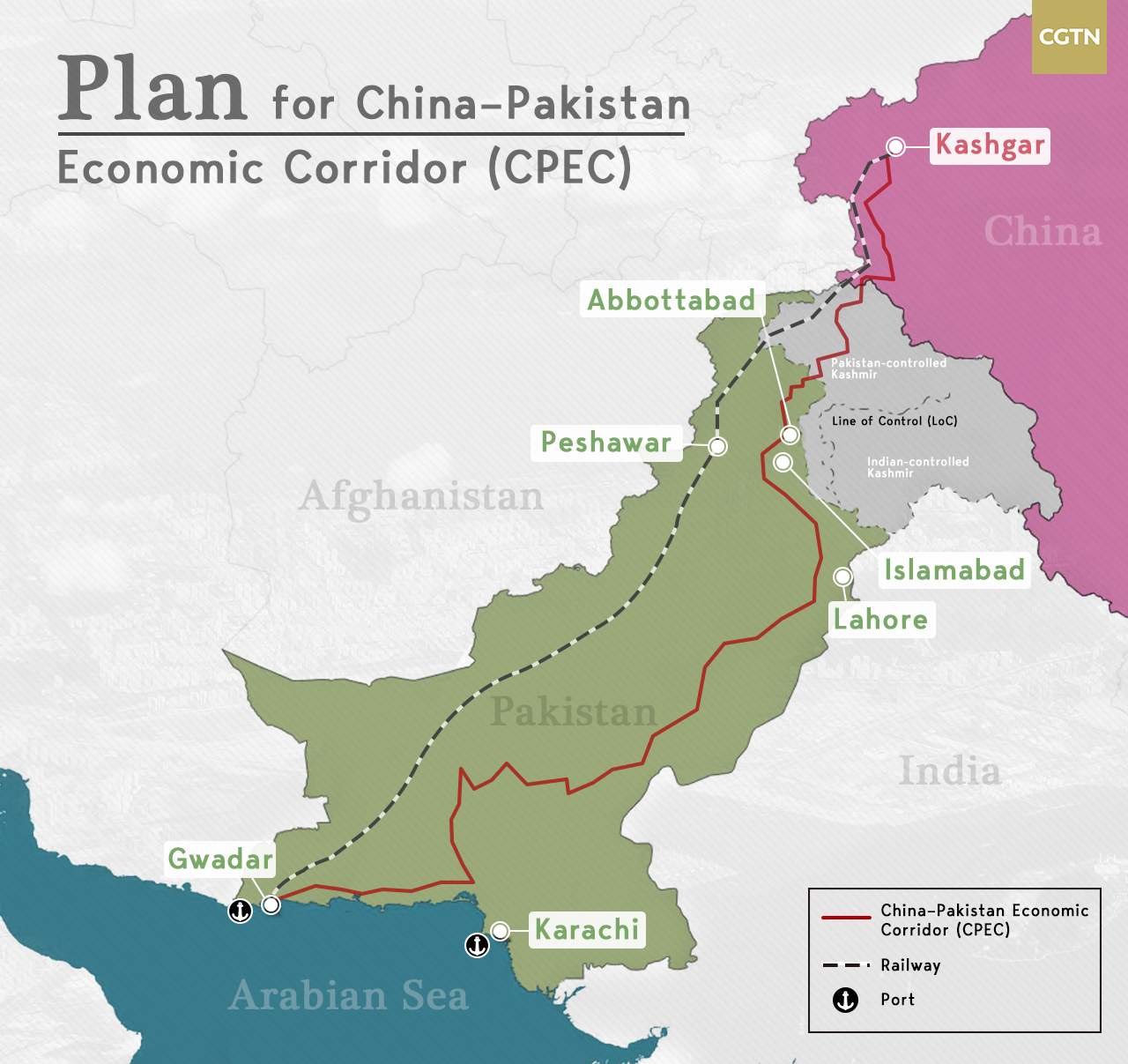Economic corridor to further boost Pakistan's development
By : Major Yamin Ahmed Khan (R) SI
The China-Pakistan Economic Corridor (CPEC), from China's Kashgar to Pakistan's Gwadar, has managed to promote connectivity across Pakistan by a network of highways, railways, pipelines, and optical cables and is expected to further boost the economic growth of Pakistan.
Expected to link the Silk Road Economic Belt in the north with the 21st Century Maritime Silk Road in the south, CPEC provides an opportunity for Pakistan to be a transport hub for South Asia, Central and Western Asia, Middle East and Western China by energy, infrastructure, industrial cooperation, and Gwadar port construction.

Half of 22 projects under CPEC belong to energy construction. The Port Qasim coal-fired power plant, jointly financed and constructed by Qatar's Al-Mirqab Capital and Power Construction Corporation of China (PowerChina) is the first one to implement, capable to generate nine billion units of electricity to about four million households in the country.
The upgradation plan of Karakorum Highway (KKH), part of an arterial road from Pakistan's north to south and the only land route connecting China and Pakistan, and Peshawar in Khyber Pakhtunkhwa to Karachi Railways, or the ML-1, will promote connectivity, facilitate local economy and people's lives along the route.
Launched on March 29, New Gwadar International Airport is a 230-million-U.S.-dollar project funded by the Chinese government, which would link Pakistan's southwest Gwadar port city, 600km east of the world's biggest energy choke point, the Strait of Hormuz, with the rest of the world.
After the gradual improvement of energy, power and transportation, Pakistan aims to take steps on construction of special economic zones (SEZs) under CPEC with the Finance Minister already requiring the board of investment to approve application of companies interested in investing in the SEZs in 45 days from previous 90 days this year.
According to Pakistan's official data, CPEC has provided over 70,000 direct jobs for Pakistanis by October 2018 since it was launched in 2013.
Saudi Arabia has also been attracted by a potential Pakistan and both sides signed eight agreements worth 20 billion U.S. dollars, including Saudi Arabia's Aramco-run refinery in the Pakistani port of Gwadar, one of the world's largest refineries, at a value of 10 billion U.S. dollars in February.



Comments
Post a Comment